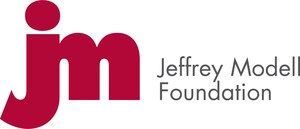
Positive Changes for Primary Immunodeficiency Patients in Latin America
MEXICO CITY, Oct. 12, 2011 /PRNewswire-USNewswire/ -- Up until today children and adults in Latin America suffering from a genetic disorder which severely affects their immune system have gone unnoticed by their national health service. Today, this silence has been broken with the Primary Immunodeficiency (PI) Community speaking out for the needs of PI patients who live without a proper diagnosis and access to the care they desperately need.
To view the multimedia assets associated with this release, please click http://www.prnewswire.com/news-releases/positive-changes-for-primary-immunodeficiency-patients-in-latin-america-131560038.html
Latin American political officials, patients and expert Immunologists took part in a High-Level Summit in Mexico City today to discuss the current situation for PI in their respective countries and to endorse a Call to Action outlining what can be done to change the plight of those living with PI.
Primary Immunodeficiencies (PI) are hereditary and genetic defects in the immune system that cause increased susceptibility to a wide range of infections, affecting the skin, the ears, the lungs, the intestines and other parts of the body. These infections are often chronic, persistent, recurring, debilitating, and in some cases, fatal. To date more than 160 specific conditions have been identified.
In order to increase awareness of PI Diseases, and to ensure that each Latin American child and adult has the best chance of being diagnosed early and effectively treated, the PI Community agreed on steps that Latin American governments must take to assure understanding, earliest possible diagnosis, and appropriate treatment of these devastating diseases.
The commitment of the PI Community has been recognized by Dr. Romeo S. Rodriguez-Suarez representative of the Mexican Ministry of Health who agreed that "the Call to Action will send a strong message to all Latin American countries and will encourage further dialogue between governments."
Prof Ricardo Sorensen, President of the Latin American Society for Immunodeficiencies (LASID) stated that "There are challenges that have to be addressed separately by each Latin American government and existing efforts such as the LASID Registry can provide important interaction."
Participants agreed that a lack of awareness and expertise of PI is the reason for the significant number of un-diagnosed or misdiagnosed patients in Latin America. Dr. Prof Francisco J. Espinosa-Rosales from the Latin American Society for Immunodeficiencies (LASID), highlighted the need to better understand the economic benefits of early diagnosis stating, "There is a real economic value behind early diagnosis, and a signal from Latin American governments to prioritize these diseases will help advance optimal treatment."
The audience heard from Mrs. Jose Drabwell, Chairwoman of the International Patient Organisation for Primary Immunodeficiencies (IPOPI) and patient representatives from Argentina, Brazil and Colombia. They expressed that PI is often overlooked and treated as "just" an ordinary infection, which leads to misdiagnosis and long-term suffering. Jose Drabwell added, "Indeed, a patient who receives an early diagnosis and adequate treatment can have a good quality of life at work or school and therefore can be productive to society."
Best case practices were presented by Fred Modell, Co-founder and President of Jeffrey Modell Foundation (JMF). He cited that with the support of the U.S. Congress, JMF initiated a physician education and public awareness campaign to address PI disorders. This program has generated increases of more than 40 percent annually in the number of patients referred, diagnosed and treated. When properly diagnosed, there has been a dramatic improvement in the quality of life for affected patients. The number of infections, hospital visits, and overall healthcare costs has decreased by over 70 percent. He believes that the success of JMF can be replicated in Latin America, adding "what we need is long term targeted initiatives that lead to concrete actions by the governments and development of policies which address access to safe and effective treatments and disparities of care." He encourages patient organizations, and clinicians to relay the messages widely to their home countries throughout Latin America.
Additional information:
Primary Immunodeficiency (PI) is a complex group of diseases of the immune system that can be life-threatening if undiagnosed/untreated. To date there are more than 160 specific conditions identified. These genetic defects of the immune system cause increased susceptibility to a wide range of infections, affecting the skin, the ears, the lungs, the intestines and other parts of the body. If PI is left un/misdiagnosed, the immune system remains compromised leading to chronic illness, disability, reduced working capacity, decreased quality of life for patients and families, permanent organ damage or even death. In undiagnosed or misdiagnosed patients, treatments are focused on the frequent and long term use of high dose antibiotics. Improved diagnosis of Primary Immunodeficiencies could therefore have a positive impact on the reduction in use of antibiotics, better use of health facilities and an improvement in the quality of life for the individual.
The Jeffrey Modell Foundation (JMF - www.info4pi.org ) is a global public charity established in 1987 by Vicki and Fred Modell, in memory of their son, Jeffrey, who died at the age of 15 from complications of Primary Immunodeficiency (PI). The JMF is dedicated to early and precise diagnosis, meaningful treatments, and ultimately cures of Primary Immunodeficiencies. During 25 years, the Foundation and its 100 Jeffrey Modell Diagnostic and Research Centers have supported basic and clinical research, and have provided physician education, patient support, public awareness and advocacy.
The Latin American Society for Immunodeficiencies (LASID - http://www.lasid2011.org/About.asp) (previously the Latin American Group for Immunodeficiencies (LAGID)) has been working to promote awareness in Primary Immunodeficiencies in Latin American Countries for more than 15 years, and in particular to create registries of PI in each participating country, and to improve educational programs and national scientific meetings with pediatricians to increase early recognition and treatment LASID represents today 14 countries.
The International Patient Organization for Primary Immunodeficiencies (IPOPI - http://www.ipopi.org/) is an association of national patient organizations dedicated to improving awareness, access to early diagnosis and optimal treatments for primary immunodeficiency (PI) patients worldwide Established in 1992, IPOPI works as the global advocate for the PID patient community in cooperation with its National Member Organizations (NMOs) and key PI stakeholders.
Media Contact
Vanessa Tenembaum
T: +1 516-375-6669
[email protected]
SOURCE Jeffrey Modell Foundation






Share this article